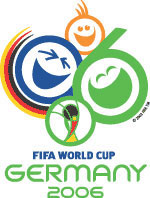

  FRONT PAGE SiteSearch About us Directories  London Olympics: Legacy 2012 Olympics: East London Impact of 2012 Olympics The 2006 Football World Cup 2006 World Cup cities & games 2006 World Cup Stadiums Football World Cup - Cologne How London won the 2012 Olympics 2012 Olympics: The popular vote 2010 Winter Olympics  City Mayors reports news from towns and cities around the world. Worldwide | Elections | North America | Latin America | Europe | Asia | Africa | Events |  Mayors from The Americas, Europe. Asia, Australia and Africa are competing for the annual World Mayor Award. More  City Mayors ranks the world’s largest as well as richest cities and urban areas. It also ranks the cities in individual countries, and provides a list of the capital cities of some 200 sovereign countries. More  City Mayors reports political events, analyses the issues and depicts the main players. More  City Mayors describes and explains the structures and workings of local government in Europe, The Americas, Asia, Australia and Africa. More  City Mayors profiles city leaders from around the world and questions them about their achievements, policies and aims. More  City Mayors deals with economic and investment issues affecting towns and cities. More  City Mayors reports on how business developments impact on cities and examines cooperation between cities and the private sector. More  City Mayors describes and explains financial issues affecting local government. More  City Mayors lists and features urban events, conferences and conventions aimed at urban decision makers and those with an interst in cities worldwide. More  City Mayors reports urban environmental developments and examines the challenges faced by cities worldwide. More  City Mayors reports on and discusses urban development issues in developed and developing countries. More  City Mayors reports on developments in urban society and behaviour and reviews relevant research. More  City Mayors deals with urban transport issues in developed and developing countries and features the world’s greatest metro systems. More  City Mayors examines education issues and policies affecting children and adults in urban areas. More  City Mayors investigates health issues affecting urban areas with an emphasis on health in cities in developing countries. More  City Mayors examines the importance of urban tourism to city economies. More  City Mayors examines the contributions history and culture make to urban society and environment. More  City Mayors describes the history, architecture and politics of the greatest city halls in the world. More  City Mayors invites readers to write short stories about people in cities around the world. More  City Mayors questions those who govern the world’s cities and talks to men and women who contribute to urban society and environment. More  City Mayors profiles national and international organisations representing cities as well as those dealing with urban issues. More  City Mayors reports on major national and international sporting events and their impact on cities. More  City Mayors lists cities and city organisations, profiles individual mayors and provides information on hundreds of urban events. More |
Twelve German cities will host
|
 |